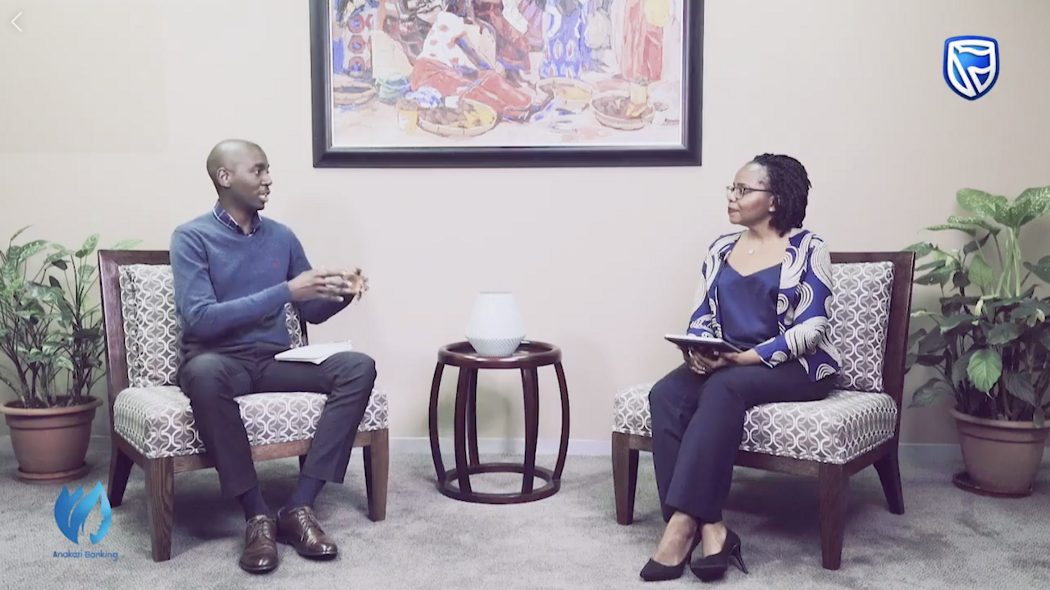
Digital Innovation sits at the core of practically every successful business today. It involves the use of digital technology to enhance service provision. The need to be digitally innovative as a business has become even more necessary during this pandemic. Adopting a digital way of operation can help your business meet its strategic objectives. How can businesses go about this process in order to unlock potential?
Stanbic Bank Zambia hosted BongoHive Co-founder and Executive Director, Lukonga Lindunda, to discuss how local businesses can tap into local talent and capabilities in the digital innovation space, on the Anakazi Banking Online Conversations Episode 11 — Digital Innovation in Zambia. (The video is available here — Facebook link). Lukonga Lindunda explains:
How can Zambia leverage technology?
Technology is embedded in our daily lives, we might not always realise it. Technologies like virtual and augmented reality, artificial intelligence, machine learning, among others, are some of the technologies been exploited across the globe. The big question is how then, do we leverage them to provide opportunities for local businesses?
There are important factors that can help us understand how we can reap substantial benefits from technology and one of them is our young population. We need to tap into the talent and capabilities that young people have by providing them with the relevant tools, skills and knowledge that are needed to unlock the potential in the Zambian digital space. Connecting young people to a globalized environment which is harnessing tech proactively serves as a perfect foundation.
How is BongoHive unlocking talent?
One way that we hold dear in unlocking talent is by building the right partnerships. For example, our partnership with Amazon and Facebook allows us to provide a global tech platform for the local people who want to get a deeper understanding of technology. The other way is by being locally relevant to the startup ecosystem by providing programmes that help startups to solve problems. We bring entrepreneurs to the realisation that for them to thrive, they have to prove their relevance by running businesses that are addressing gaps in their local markets. We also connect such entrepreneurs to market opportunities and we continue to provide support as they go through our programmes and beyond. Overall, bringing different players has been key in unlocking the potential of individuals and businesses.
How can businesses tap into local opportunities?
For businesses to fully tap into opportunities in digital innovation, a solid relationship should exist between corporates and startups. Corporates and startups each play a role in unlocking business opportunities and the two can work in collaboration. Corporates who are big players in the industry need to understand how to integrate innovation in their operations in order to benefit from startups. Startups, on the other hand, should have knowledge in the B2B market and be knowledgeable and credible enough to provide a service to corporates, Addressing the gaps that exist between corporates and startups will make it possible for both parties to penetrate new markets.
How does BongoHive help institutions to innovate?
Internally, through BongoHive Consult, we help institutions innovate through our services like masterclasses. On the other hand, we provide a platform for institutions to tap into open knowledge. We do this through innovation challenges where we link institutions to startups who can solve particular problems. An institution may not have a team that has the capability to solve certain challenges, hence collaborating with startups who have solutions is key to achieving organisational goals and opening opportunities.
What role is BongoHive playing in achieving social-economic impact?
We are focused on building capacity for individuals and organisations. An example is the webinars that we conduct to keep the community educated and engaged during these times when many physical programmes have been cancelled. Currently, we are conducting training sessions for civil society organisations to help them understand how to leverage remote working tools.
Going forward as an organisation, we want to leave a long-lasting social-economic impact by focusing on the startup ecosystem and building more partnerships so that we build a solid pipeline for startups; making it easier for them to start and grow their businesses. We are also looking at growth opportunities which will enable us to penetrate other regions in Zambia in order to make Zambia more attractive for investment.
Our biggest goal is to work with the startup ecosystem in growing businesses that are making an impact.
— Lukonga Lindunda
 BongoHive
BongoHive